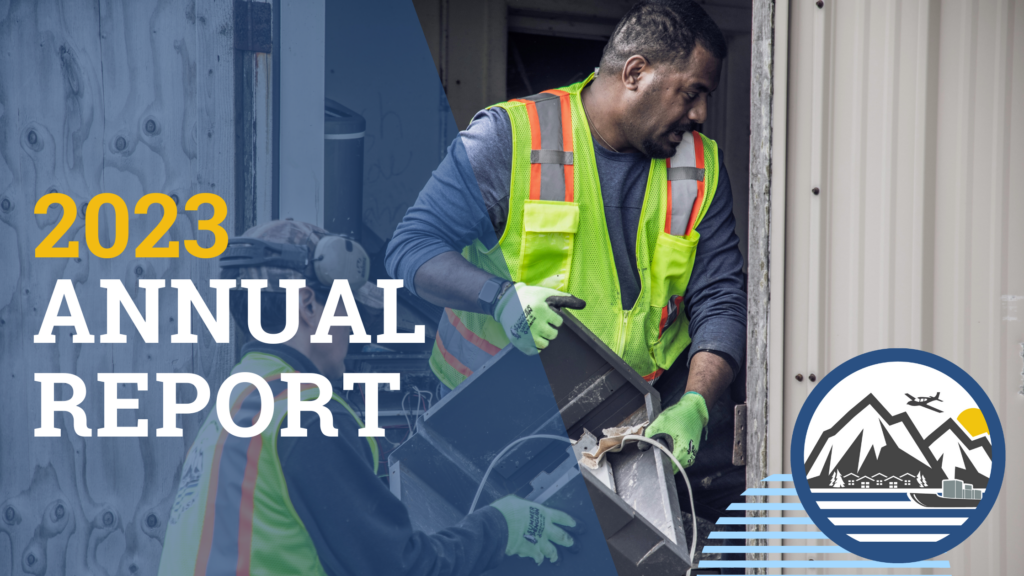
The Backhaul Alaska Program (BAP), steered by the Solid Waste Alaska Taskforce (SWAT), is designed to facilitate a statewide system for the effective and economical backhaul of hazardous and potentially hazardous materials from all Alaskan communities. Managed by key representatives from diverse environmental and community-focused organizations, BAP supports rural communities with essential training, supplies, and logistical support for backhauling operations.
In 2023, the Backhaul Alaska Program (BAP) continued to expand upon its "hub & spoke" strategy, a foundational aspect of its waste management framework initiated during its initial implementation phase in 2022. This year's focus was on enrolling additional communities and enhancing regional collection events.
BAP maintained its commitment to equipping rural Alaskan communities with the necessary training, supplies, and technical support needed to efficiently backhaul materials such as escrap, lead acid batteries, and Universal Waste lamps, building on the substantial groundwork laid in previous years.
In 2023, the Backhaul Alaska Program (BAP) continued to expand its reach and enhance its services across Alaska. Key initiatives included developing regional hubs for long-term backhaul services and utilizing significant Matson freight donations to facilitate substantial shipments in regions like Unalaska and Kodiak.
The program also focused on addressing hazardous household waste (HHW), utilizing regional resources for comprehensive waste management solutions, and streamlining supply chains to lower costs. This concerted effort allowed BAP to extend services to 53 communities, bringing the total served to 79.
In 2023, the BAP significantly expanded its educational initiatives, offering five key training sessions aimed at enhancing safety and efficiency in hazardous material management. These sessions were attended by 76 individuals from 43 Alaskan communities, emphasizing practical skills in hazardous material regulations and best practices for safe backhaul operations. Highlights included specialized training in partnership with Kodiak Area Native Association (KANA) and targeted environmental job training for rural Alaskan communities. The comprehensive spread of training locations from Anchorage to Kodiak illustrates BAP's commitment to statewide educational outreach.

In 2023, the BAP carried out comprehensive site visits to ensure the effectiveness of its backhaul initiatives across diverse Alaskan communities. These visits, crucial for maintaining high standards of waste management, involved detailed assessments of community readiness, verification of material inventories, and evaluations of storage capacities.
Key Activities During Site Visits:
Impact of Site Visits: From working with local backhaul coordinators in rural communities to working with regional coordinators in Fairbanks and Kodiak, these site visits highlighted BAP’s adaptive approach to environmental stewardship, ensuring that all communities received the support needed to effectively manage and reduce hazardous waste.



Throughout 2023, the BAP has managed the logistics and transportation of approximately 450,000 lbs of materials from various Alaskan communities, focusing on efficiently and cost-effectively connecting these communities with recycling vendors. The year also saw a shift in how the program manages its Control Tower operations.
Previously handled by Waste Management, staffing challenges led BAP to bring these responsibilities in-house, directly overseeing the complex logistics that facilitate recycling efforts across Alaska. This change aims to enhance the responsiveness and adaptability of the program to the unique challenges presented by remote and diverse community needs.

BAP's packaging validation efforts for 2023 involved feedback from several partners, addressing the overall quality and specific suggestions for improvement: